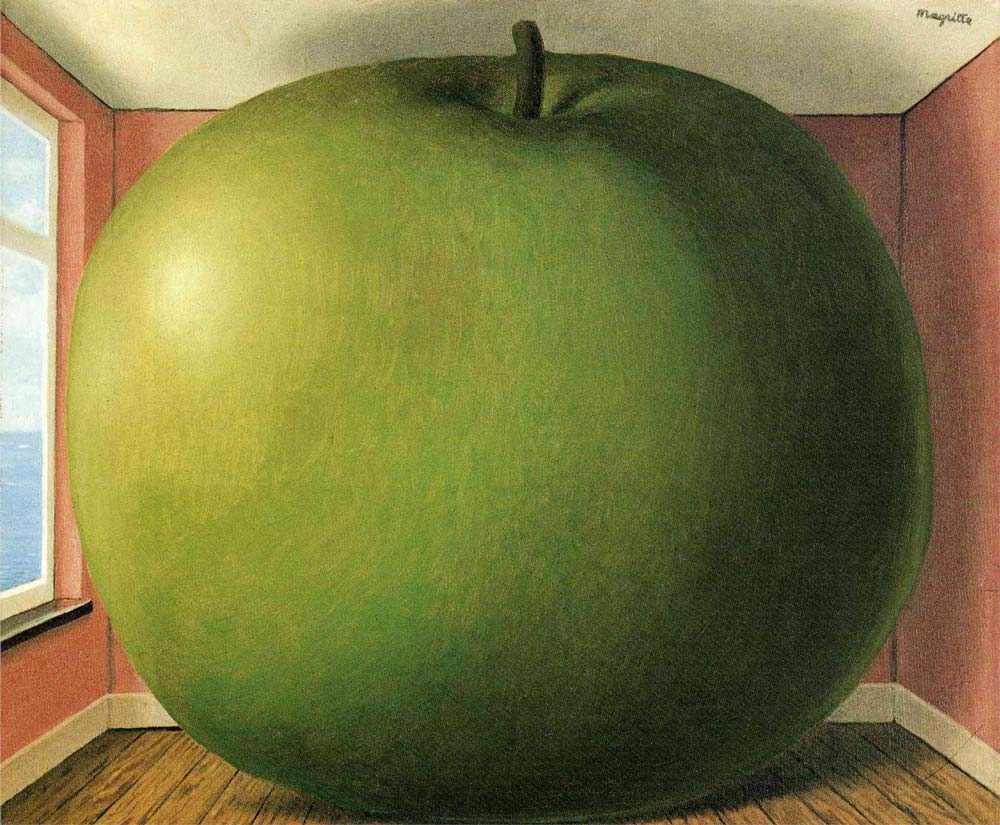| The Listening Room | |
|---|---|
 |
|
| Artist | René Magritte |
| Year | 1952 |
| Medium | Oil on canvas |
| Location | Menil Collection, Houston, TX |
| Dimensions | 18 in × 22 in |
| 45 cm × 54.7 cm | |
| René Magritte Famous Paintings | |
| The Son of Man, 1964 | |
| The Treachery of Images, 1928–29 | |
| The Human Condition, 1933 | |
| Golconda, 1953 | |
| The Listening Room, 1952 | |
| The False Mirror, 1928 | |
| Elective Affinities, 1933 | |
| The Mysteries of the Horizon, 1955 | |
| The Empty Mask, 1928 | |
| Complete Works |
There are actually two versions of The Listening Room by René Magritte. One was completed in 1952 and the other in 1958. In that respect they are similar to an earlier work titled The Empty Mask. However those two creations were quite different with one consisting of just words on a canvas and the other being a 5 frame painting of varying scenes. These two creations are essentially the same with just the surroundings of the main object being changed. The 1952 painting is available for public viewing as part of Houston’s Menil Collection.
Meaning
Magritte’s 1952 The Listening Room features a green apple virtually filling a room floor to ceiling. It sits atop a wood floor and is illuminated with light entering from a white trimmed glass window. White crown molding surrounds the room attached to the white ceiling which appears to have yellowish wall colorings. A shadow of the monstrous apple is apparent on the wall across from the window.
In 1958, Magritte used the same apple, but placed it in a space of grey colored brick and an open arched window. It is a representation of a common theme with Magritte’s artworks called The Illusion of Reality.
Art Form
This is a symbolic painting completed during René Magritte’s mature period and is of the Surrealism art form.